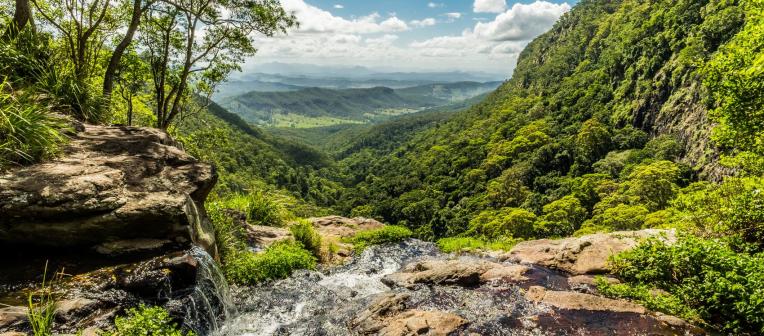
Climate change network capabilities and impact
What we're working on
UQ's research encompasses technical climate modelling, as well as how to adapt responses to climate change impacts on biodiversity, agriculture, built environments, the health sector and people and communities. Our researchers have the expertise to respond to climate change through business and finance, law and policy and political processes.
Ecosystems
We’re exploring the effects of climate change, including biodiversity's role in mitigating impacts and assessing risks for future development in environments.
Capabilities
- Landscape-scale ecosystem risk and vulnerability assessments to climate change:
Evaluating ecological risks and vulnerabilities at broad spatial scales, incorporating climate projections to inform resilience strategies. - Anthropogenic risk mapping across Earth's realms:
Developing and applying spatial tools to map human-induced risks — including climate change — across terrestrial, freshwater and marine systems. - Climate-smart ecosystem service assessments:
Assessing ecosystem services through integrated ecological, social and economic lenses to support sustainable management and decision-making. - Decision-theoretic planning under climate uncertainty:
Using decision theory frameworks to guide conservation and land-use planning that accounts for the uncertainties of future climate scenarios.
Impact
- Blue Carbon (UQ researchers shaped the Federal Government’s first blue carbon method).
- Coral reef resilience (UQ researchers have undertaken critical work to increase the resilience of ecosystems like the Great Barrier Reef).
- Coastal ecosystem protection and restoration (Research at UQ’s Moreton Bay Research Station is discovering how restored oyster reefs can improve the health of Moreton Bay under climate change).
- Conservation planning assessments (research at UQ is informing the siting of renewable energy infrastructure to ensure actions have optimal climate and biodiversity outcomes).
Health
Our research aims to uncover the ways in which climate change impacts human health, alters living conditions, and affects survival. We are dedicated to reducing the risks associated with climate impacts on health in order to promote a healthier population.
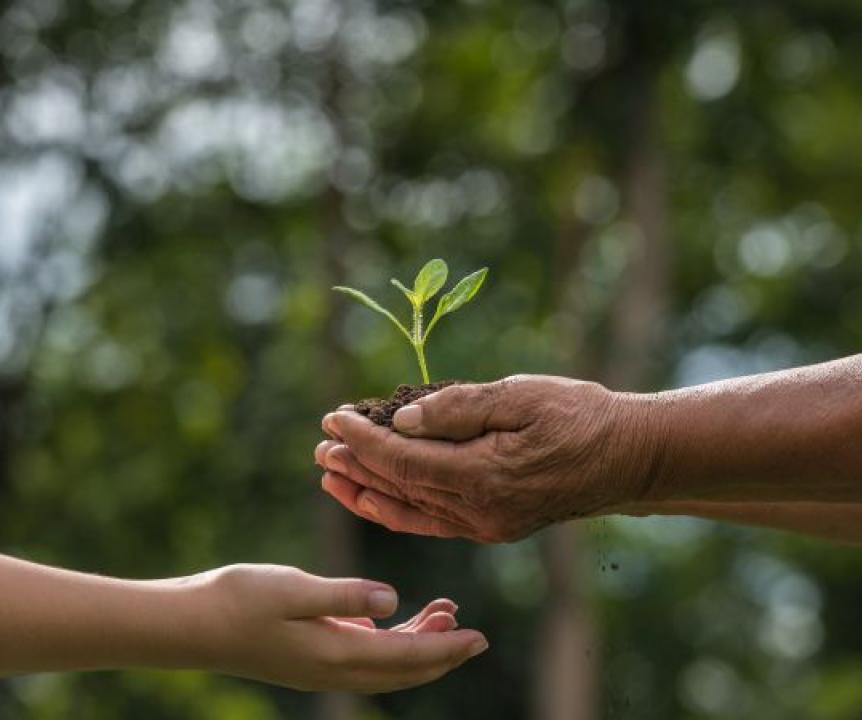
Capabilities
- Supporting population and health system resilience to climate change.
- Exploration of climate-sensitive infectious diseases.
- Working with priority populations to protect and manage climate-health impacts.
- Strengthening OneHealth approaches to prevent and resolve climate-health issues involving humans, animals and the environment.
- Contributing to health-protective decision-making on climate change.
Impact
- World Health Organisational representation (Technical Working Group for the WHO Pacific Region; A/Prof Dung Phung).
- Lead Authorship of the Intergovernmental Panel on Climate Change (IPCC Assessment Report 6; A/Prof Nina Lansbury).
- Contribution to the Australian Government’s consideration of Indigenous Knowledges on Climate Change (Adj Prof Sandra Creamer).
- Documentation of Indigenous-led responses to climate change planning (Mr Francis Nona).
- Leadership on climate change and mental health impacts (A/Prof Fiona Charlson).
Policy, politics, and law
Addressing climate change requires legal, policy, and communication strategies for societal support. At UQ we're utilising networks and expertise to secure support and drive action against the climate crisis.
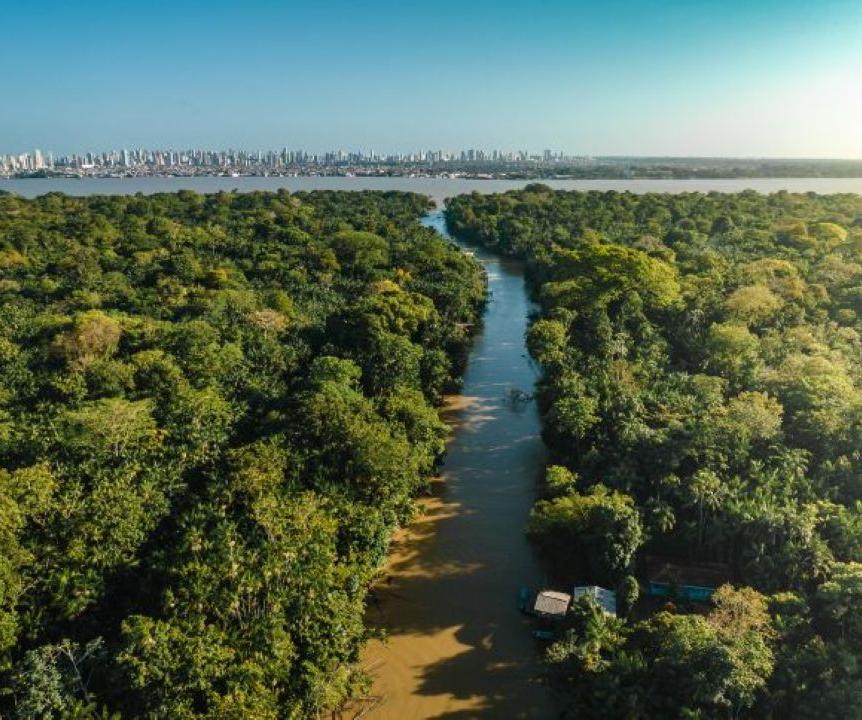
Capabilities
- Engaging public and society on climate politics.
- The international politics of climate change.
- The politics of engaging business and the mining sector on climate.
- Climate, health, and social policy.
- Legal mechanisms for addressing climate change.
- Food, equity, and climate.
- Measuring climate harms and compliance.
Impact
-
Providing advice to Australia’s Defence establishment and the UN’s Climate Security Mechanism on comparative national approaches to the security implications of climate change.
People and communities
Individuals, communities, and Indigenous peoples have important contributions to the social change necessary for effective mitigation and adaptation. Our research develops and evaluates approaches for inclusive participation and community action.
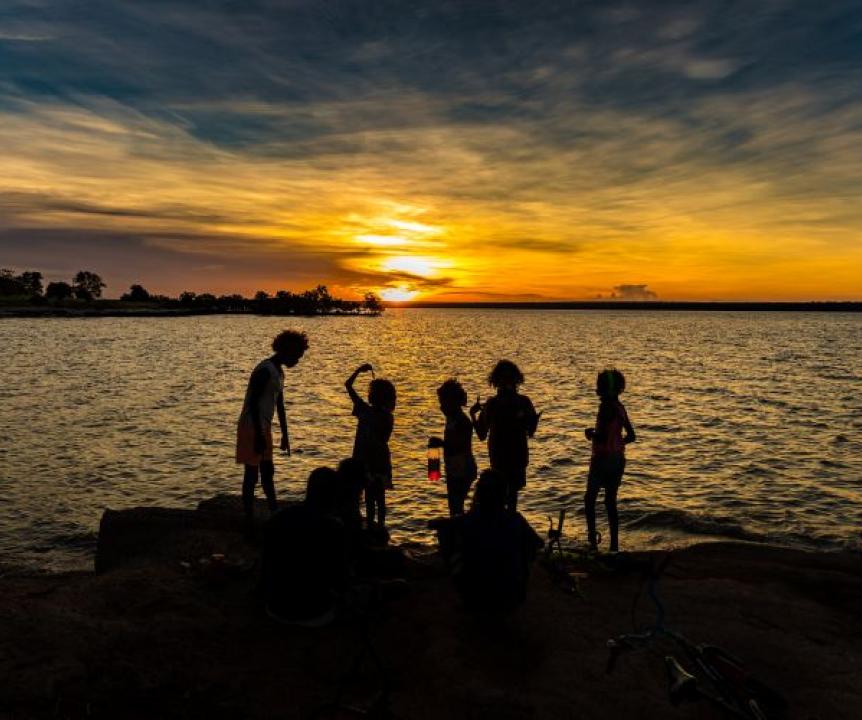
Capabilities
- Human rights (including Indigenous rights) dimensions of climate change and climate justice.
- Understanding and overcoming social, economic and political mental barriers to climate action and strategies to empower diverse communities.
- Health and well-being consequences of climate change.
- Social cohesion and community resilience to climate change.
- Strengthening understanding, support and actions across all sectors, from communities through to government agencies.
Impact
UQ researchers continue to:
- Benchmark community perceptions about climate change and support for decarbonisation initiatives, nationally and internationally.
- Identify effective communication approaches to motivation mitigation actions.
- Partner across the region to support development of climate adaptation plans.
- Showcase innovative approaches to climate change and creative communication.
- Develop tools to strengthen and monitor community stewardship of climate-affected ecosystems such as the Great Barrier Reef.
Sustainable built environment
We're advancing climate-responsive cities through low-carbon buildings and circular economy solutions to enhance environmental and social outcomes.

Capabilities
- Decarbonising the built environment – energy-efficient buildings, low-carbon materials, sustainable mobility.
- Enhancing climate resilience – disaster-resilient infrastructure, urban cooling strategies, water-sensitive design.
- Circular economy innovation – resource-efficient materials, adaptive reuse, heritage conservation.
- Implementation pathways – systems thinking, digital twins, urban sustainability policy.
Impact
- Sustainable Low Carbon Concrete for Future Concrete Infrastructure – Smartcrete CRC (Prof Rebecca Gravina).
- Timber Efficiency Research – ARC Advanced Timber Hub (A/Prof Joe Gattas).
- Lightweight Cardboard panels, sustainable solution for temporary housing – ARC Advanced Timber Hub (A/Prof Joe Gattas).
- Modelling impacts of natural hazards on interconnected infrastructure networks – Natural Hazards Research Australia (A/Prof Matthew Mason).
- Novel Offshore Fish Pen Design – Blue Economy CRC (Prof CM Wang).
- Developing the Climate Resilient Infrastructure Guidelines for DFAT's $300m PNG’s Economic and Social Infrastructure Program (ESIP) program.
- Developing the Sustainable Urban Development Framework for a $30b new city development in SE Asia.
- Creating a Climate Adaptation Plan for the Queensland Government's Climate Adaptation Strategy (Q-CAS).
- Reimagining offsite manufacturing for high-performance adaptable housing.
- Building performance and energy efficiency monitoring with the Queensland Department of Communities, Housing and Digital Economy.
- Collaborating with partners to ensure Aboriginal community voices inform climate resilience of their housing and energy systems.
- Combining digital twins and machine-learning to inform urban decision-making.
Agriculture, land, and resource use
We understand that food production within climate variability and resource scarcity is challenging. UQ is leading innovative agriculture solutions, emphasising climate-resilient systems.
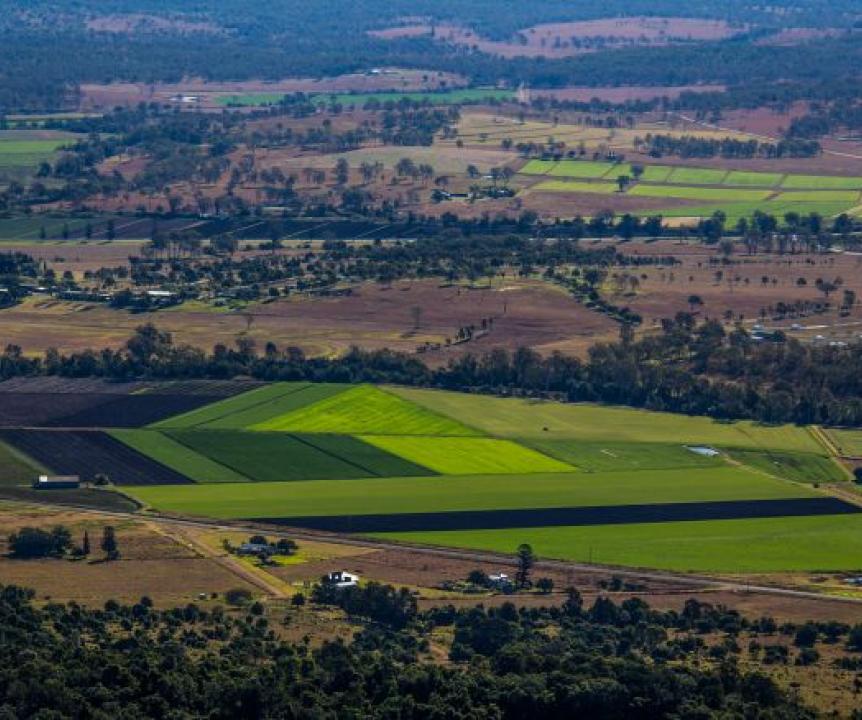
Capabilities
- Enhanced heat and drought adaptation in crops and livestock through predictive breeding and genomics.
- Advanced breeding and management technologies to reduce methane emissions in cattle.
- Advanced climate change impact assessments on animal health.
- Development of plant-based renewable carbon products, including sustainable aviation fuel.
Impact
- The Queensland Alliance for Food and Agriculture Innovation (QAAFI) at UQ brokered the Zero Net Ag CRC, securing strategic partnerships and funding to develop solutions for low-emissions agriculture.
- UQ has developed remote and proximal sensing technologies for measuring climate stress in plants and animals.
- Innovated post-production solutions to improve supply chain efficiency, reduce waste, and lower the carbon footprint of food systems.
- Strengthened sustainability and carbon accounting using AI-driven tools for emissions tracking, life-cycle assessments, and compliance support.
Business and finance
We’re creating a sustainable future by equipping stakeholders with knowledge and strategies for achieving net zero commitments in business and finance.

Capabilities
- Development of effective practical measures that trigger climate change mitigation and adaptation behaviours.
- Understanding how consumers and business make decisions about the environment and climate change.
- Climate and sustainability disclosure best practices (including avoiding misleading corporate climate pledges).
- Corporate environmental performance measurement including science-based approaches to target setting and monitoring.
- Attracting investment for sustainable organisations and projects.
- New models of sustainable business (including circular economies).
- Scenario planning and risk assessment for climate accountability.
- Crisis and disaster management in climate-affected services.
- Insurance challenges of climate change.
Impact
- Informed the Insurance Status Review and Recommendations for Lismore report for the NSW Reconstruction Authority’s response to the ‘Inquiry Into Insurers Responses to 2022 Major Floods’ (Sub 83).
- Informing COP29 Tourism discussions in Baku on ‘Raising the Climate Ambition of the Tourism Sector – from commitments to implementation (measurement and decarbonization)’.
- Development and testing behaviour change interventions that reduce carbon emissions in tourism businesses.
- Secured research tender with the Australian regulator mandating climate-related disclosures (the Australian Accounting Standards Board) to benchmark intended and unintended consequences from the regulation, AASB S2 Climate-related disclosures.
- Developed climate and sustainability related education initiatives aimed at building climate capability across UQ undergraduate, postgraduate and executive education programs.
Climate science
By undertaking various climate science projects, including observe extreme events, climate hazards and collaborating with government, we hope to inform policies to reduce future impacts and build resilience to natural hazards.
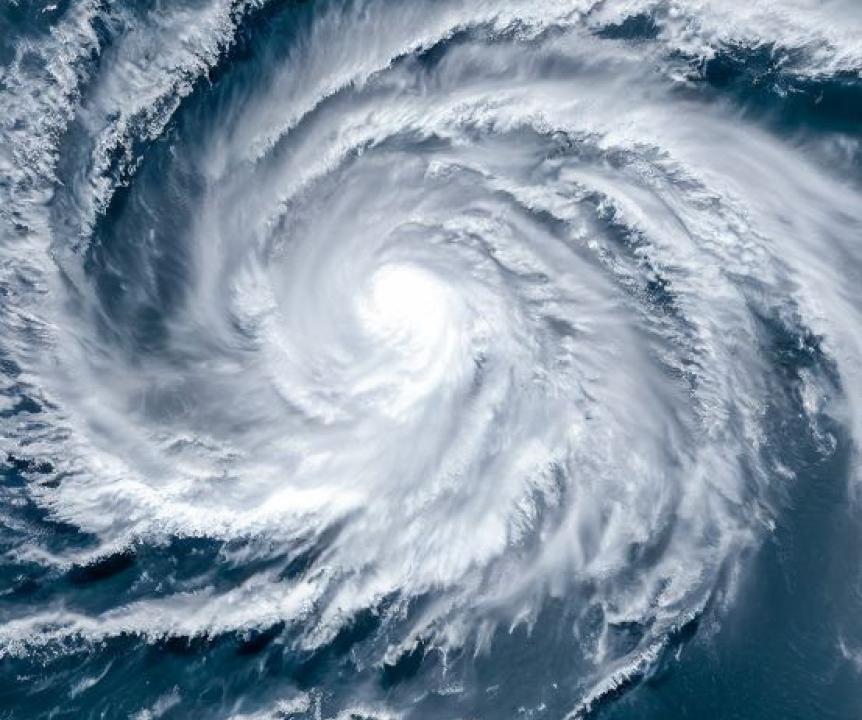
Capabilities
- Regional climate modelling focussing on Queensland’s climate features.
- Climate model evaluation at global, regional and convection-permitting scales.
- Analysis of observational and projections data to derive extreme events and climate hazards, such as droughts, heatwaves, extreme precipitation, tropical cyclones, marine heatwaves and bushfire risk.
- Production of regional climate projections under different emission scenarios.
- Translation of scientific knowledge and information into climate services to inform policy and decision making.
- Modelling of ocean circulation processes, paleoclimate and ocean-climate feedback.
- Subject matter expert advice in climate modelling, extreme events, climate hazards and climate change impact assessments.
Impact
- Strong presence and influence at national, state and local climate science and policy landscapes.
- State-of-the-art contributions of scientific knowledge with global impact.
- Provision of official regional climate projections data for Queensland Government and Federal Government (e.g., National Computation Infrastructure datasets and National Partnership for Climate Projections member).
- Development of highly regarded climate services portal with tailored projections data for over 450 regions and locations in Queensland (i.e., Queensland Future Climate Portal) widely used for climate adaptation and mitigation strategies by councils, government agencies and industry.
- Translation of knowledge and engagement with communities of practice undertaking climate change and impact assessments in Queensland and Australia.
- Collaboration with state and national agencies to develop broad-scale risk and hazard assessments (e.g., Queensland State Heatwave Risk Assessment and Severe wind Hazard Assessment for Queensland).
- Development of frameworks to assimilate climate projections in multiple areas of knowledge (e.g., riverine flooding, water supply, biodiversity, health, among others).
